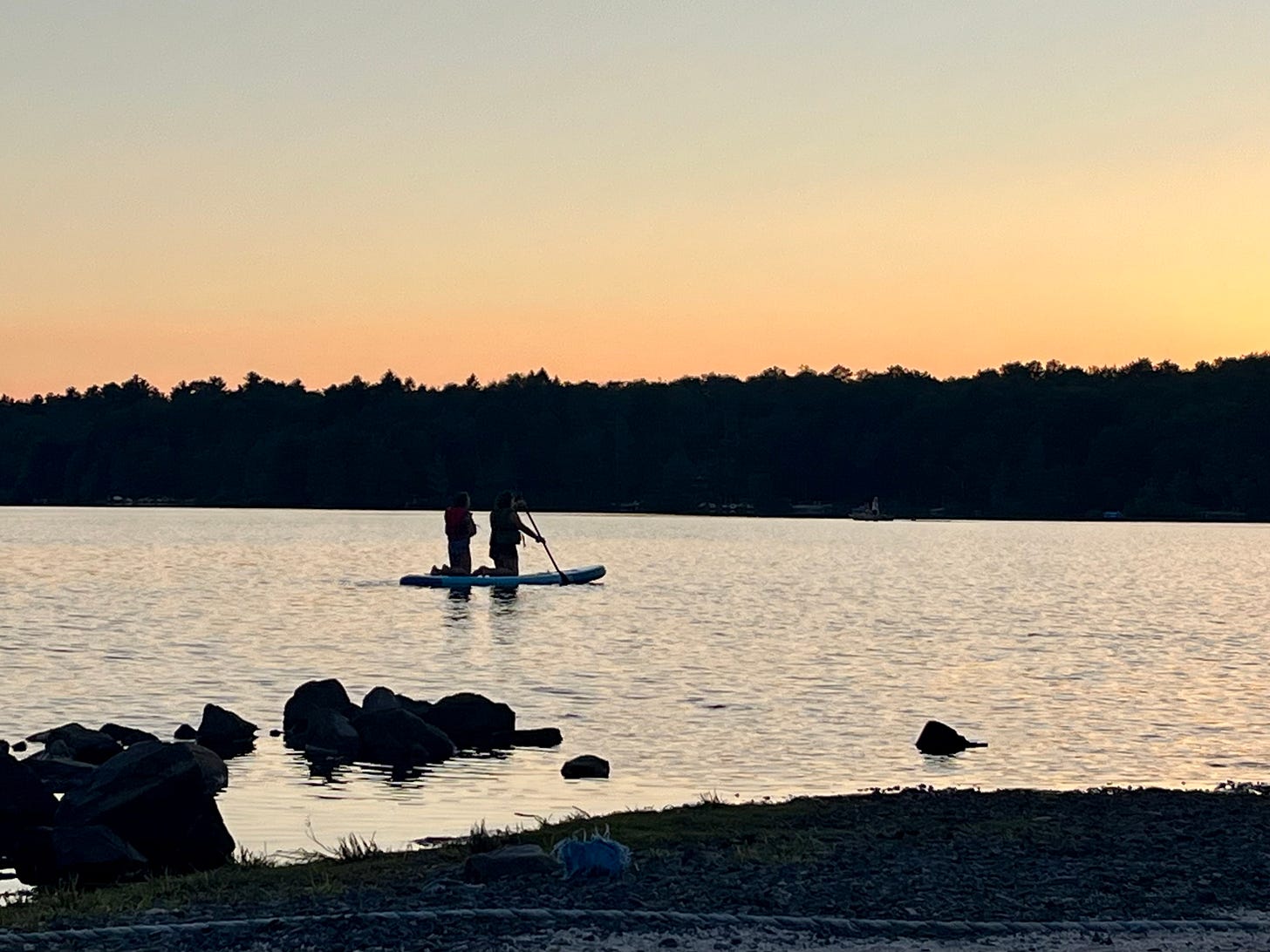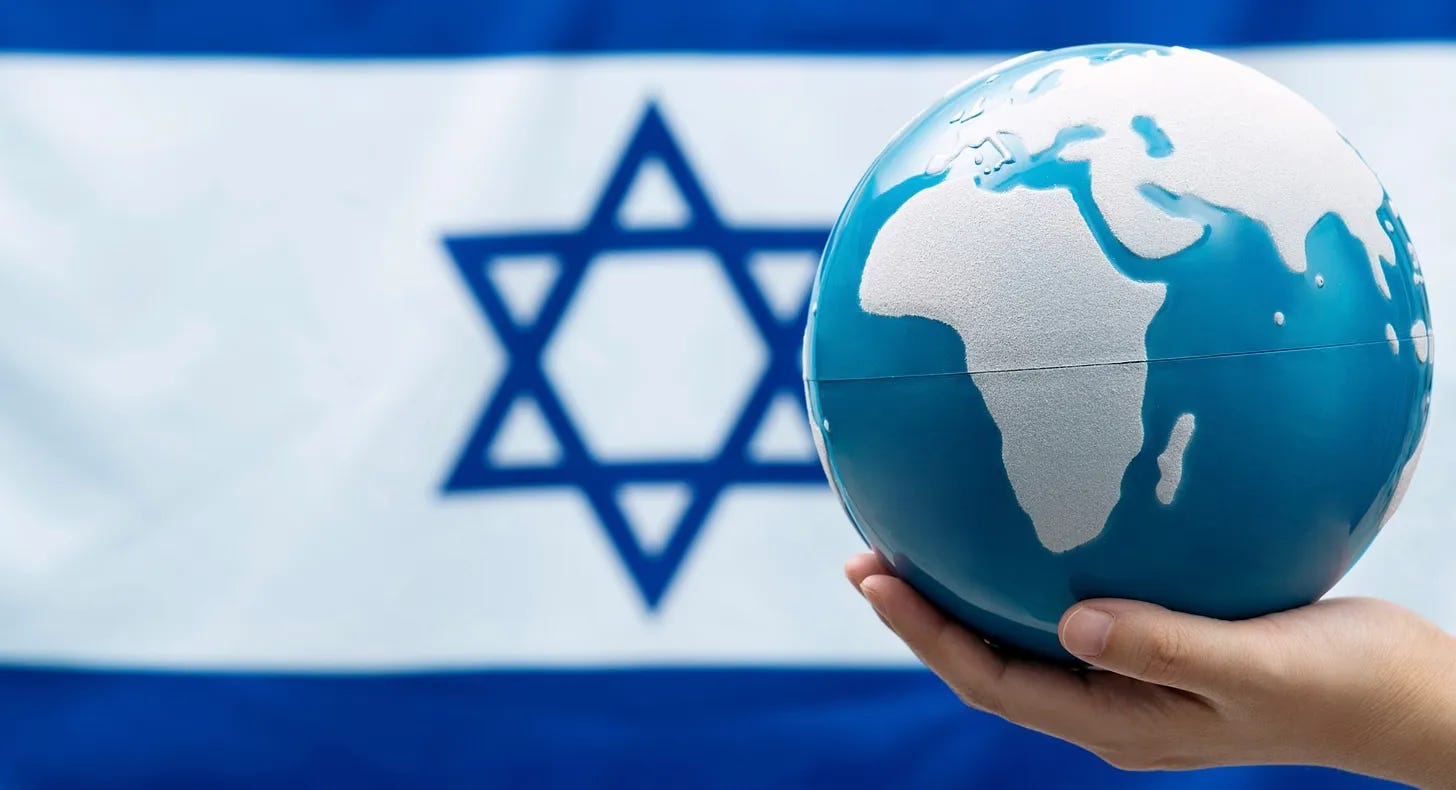The Spirituality That's Real To Me
"I want to engage with like minded spiritual people (Jewish, Christian, Buddhist, Muslim — the doctrine matters less to me), who want to feel loved and engaged."
By Allison Fishman Task
I’m a life coach.
I know, I know. Enter punchline __.
After 19 years of this work, I’ve heard most of the gags. And yet, my phone keeps ringing. Many folks these days are more open to seeing a coach than a therapist (of course there’s room for both); I’m surprised and delighted by how the industry keeps growing.
One of the classic tools of a coach, the one we all learn in school, is called the Whole Life Model. You can see the one I use here.
It’s a tool that clients use to review ten key areas of their lives, from finance to fun, relationships to health, family and home. One area that always raises eyebrows is spirituality.
Clients will review each area, and determine how satisfied they are, and how important it is to them. More often than not, clients say that spirituality is unimportant to them. It’s the only area that consistently ranks as unimportant.
They often couple that with the question, “what does this spirituality even mean?”
A fair question. It’s not as straightforward as finances, career or physical health. And we don’t talk about it much culturally, it resides in the realm of the woo.
I assure clients that spirituality is NOT religion, it is non-doctrinal. It’s your sense of connectedness to the world, to others, perhaps to something larger than yourself. It’s a connection to God, to the divine, or simply the life you see in trees and birds that also courses through your veins. It’s a sense of connectedness to something else, possibly even deep meaning and purpose.
I love the Jewish concept of b’sheret, “meant to be,” as a way to understand spirituality. I find myself using that term all the time, with a nod and a wink. After my friend learned she had to rehome her dog (allergies), that very night she also learned of a family who had just put their dog to sleep. B’sheret. When a client applies to a ‘big reach’ masters program and is accepted with a full scholarship – b’sheret. She wasn’t even sure if she was going to go, but this was an offer she couldn’t refuse.
Maybe it was a coincidence, maybe it was divinely ordained. Maybe it’s just something we can delight in, feeling that it’s a part of the b’sheret matrix.
Recently I’ve noticed that I’m more interested in spirituality than religion. I can more easily feel connected to a tree than the words praising God in my siddur.
I don’t feel connected when I say words like "Blessed are You, Lord our God, ruler of the world, who rewards the undeserving with goodness.”
Ruler? Kingdom? The undeserving? Calling myself undeserving? I don’t need more opportunities to diminish myself. And certainly not on a daily or weekly basis.
I brought this up to leaders at my children’s Hebrew school, and it was reinforced that most other parents don’t really believe in those heavy handed words either. We do believe in the Jewish culture, Jewish history and Jewish people. But not all of the specific words of religion.
And they, like me, wanted a place for their kids to go to feel spiritually engaged.
Spiritually engaged, not religiously engaged.
I want to engage with like minded spiritual people (Jewish, Christian, Buddhist, Muslim — the doctrine matters less to me), who want to feel loved and engaged. Those who want the existential lift of meaning and purpose, and want to get drunk on the fact that our planet is spinning in a galaxy filled with other planets and life forms. People who want to trip out on physics and how crazy it all is, and allow ourselves to believe in a higher power and the possibility of meaning in the chaos.
I am not interested in telling you that my religion is better than yours, it’s just the organizing principle I inherited. I can’t make a case for the doctrine, but I like the structure of religion to bring people together.
I’m curious to know how you feel when you read the Jewish words. I like to spend my time in nature marveling at the architecture of a spider or a snake, a pine tree or a turtle, enjoying the life breathed into all of us. That’s always resonated more to me than a kingdom and a king, and a father who art in heaven.
I think I’m not alone in this. Heck, Judy Blume has been helping adolescents with this spiritual search since 1970. But what say you?
And religion — I like singing and dancing and celebrating together. I like the stories of Purim and Passover and the ritual of the harvest holidays in the fall. I like eating in a sukkah, and actively atoning. I like perpetuating the rituals of my ancestors, though I find more connection in an air fern than a prayer. A day of rest for Shabbat is just a brilliant concept (and so many religions incorporate it). But the words of the Shema ring hollower as my children get closer to their b’nai mitzvot. The lord my God, the kingdom, the whole thing seems anachronistic to me.
A group breathing exercise, a meditation, a purposeful conversation? Yes to all that. My spirit connecting to yours? Yes? Taking pleasure in the ordinary? Fer sher.
The culture and a tribe to be a part of? Also cool.
I suppose I’m a secular Jew with a spiritual bent, trending toward that growing demographic of Jewish Buddhist, AKA the JewBu. I’m puzzled by the words I read and hoping that they may be modernized, respectfully, to be more spiritual and less kingdom doctrinal.
I’m curious and working through this. I don’t have answers but I’m pretty sure there are others in the same place. Here’s my open casting call for others in similar positions of curiosity who are looking for spiritual engagement, Jewishly.
Seeking all seekers.
Religion gives spirituality a framework, and the doctrine helps us engage. If we let it. To me, doctrine isn’t the point; spiritual engagement is. Spirituality isn’t religion, religion is meant to be one of many avenues that take us there.
ALLISON FISHMAN TASK is a life and career coach and the bestselling author of Personal (R)evolution.
From unpacking history and politics to navigating the nuances of family and personal relationships to finding the human angle on sports and entertainment — plus our unsparing take on what’s happening in the Jewish world — the canvas at JEWDICIOUS is limitless! JOIN US!!





